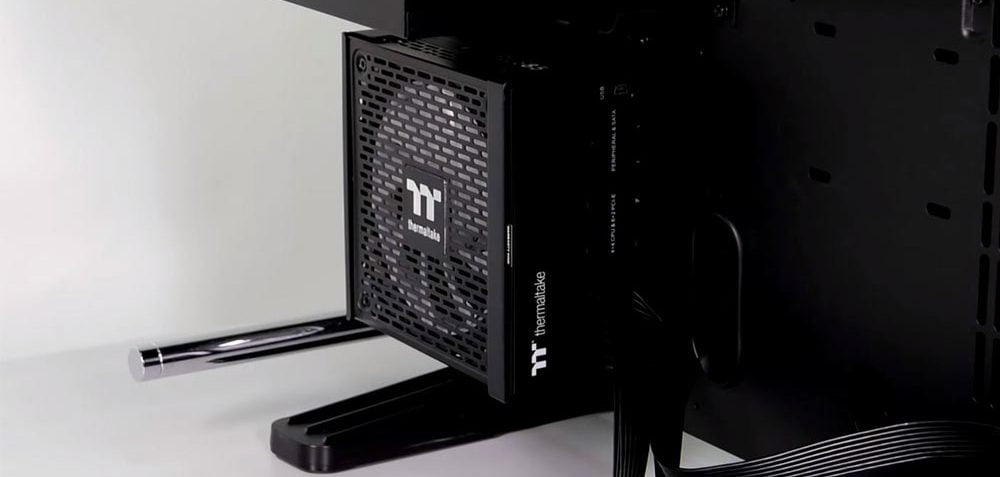This is our review guide regarding the best power supply units for RTX 3070, RTX 3080, and RTX 3090 graphics cards.
RTX 3000 graphics cards are in high demand these days.
This demand is so high that it’s almost impossible to find any card from this series at its base price on any online store out there.
Instead, it’s the scalpers that are auctioning them on platforms such as eBay and selling them at 1.5x of their original retail price (at the minimum). What’s more surprising is that people are willing to buy these cards at such a high price.
Why?
Since they offer so much performance improvement over their predecessors, it’s simply not a good decision to buy a last-gen RTX 20 card.
Best PSU For RTX 3070, RTX 3080, And RTX 3090
Table could not be displayed.But with high performance comes higher power consumption as well, and despite being more energy-efficient, these ‘ampere’ graphics cards consume more power than their predecessors.
So before you rush for any of these, it’s wise to take your PSU into consideration as well.
1. Seasonic SSR-600TL: Best PSU For RTX 3060 Ti
No products found.
Seasonic SSR-600TL is the PSU that we think to be perfect to go with RTX 3060 Ti.
It has 600W of wattage, has a fully modular design, and is rated 80+ Titanium (it means 96+% efficiency level at 50% load). More power efficiency means less wasted power and heat to deal with.
It comes in 170 mm x 150 mm x 86 mm dimensions which is quite compact for a PSU not marketed as low-profile and you can use it in some smaller mini-ITX builds as well.
Its modular panel has two rows. The top row contains the main motherboard connector and SATA connectors, while the bottom one has the secondary motherboard connector and four 8-pin CPU/PCIe connectors. All of these connectors are labeled which really helps if you’re building a PC for the first time.
The opposite side of this modular panel has the power connector and switch, and is fully vented.
Another feature of this PSU is being fan-less. Yes, it is a passive PSU so obviously a good option for those who prefer silent operations over everything else. Due to its passive nature, you will find a lot of ventilation holes all over its body.
Apart from the relatively higher price (which is the issue with all passively cooled PSUs) and some distance between physical connectors, this PSU is flawless. On the positive side, you get 105°c Japanese capacitors used inside, a huge 12-year warranty, and excellent road regulation. All of this makes it the best PSU for RTX 3060 Ti.
2. Corsair RM650x: Best PSU For RTX 3070
No products found.
A 650 Watts power supply is what we think to be perfect for RTX 3070 graphics card.
And for this range, we have picked the Corsair’s RM650X. It comes at a reasonable price and offers features like zero RPM fan mode, modular design, 80 plus gold efficiency rating, and a 10-year warranty.
The first thing you’ll notice in this PSU is the contoured edges, instead of straight edges, that (along with the matte finish) gives it nice touch considering the simple design for the rest of the body.
Its top side has a 140mm fan, but it won’t spin under low to moderate operations in order to give you quiet operations. The modular panel has as many as 9 sockets for SATA and EPS/PCIe connectors.
Like Seasonic SSR-600TL, there’s some distance between the connectors here as well. The second problem we feel is the rifle bearing type fan used here instead of the fluid dynamic bearing fan that Corsair uses in RMi series.
But still, it provides great value for its money with efficient performance and clean voltage rails, and will be a good match for RTX 3070.
We could have recommended you EVGA’s platinum-rated 650 P2 as well, but considering the extra $50 you would have to put, we decided to go with RM650x.
3. Thermaltake Toughpower 750W: Best PSU For RTX 3080
No products found.
RTX 3080 is the best graphics card you can have for gaming right now.
Yes, it has an even more powerful sibling in the form of RTX 3090 but the difference in their pricing doesn’t really translate to their performance difference and we think the former to have better value for its money.
Being primarily geared towards gamers, it’s better to pair 3080 with an RGB power supply so that it can blend well with the rest of your system. And we have Thermaltake Toughpower iRGB Plus 750W for this purpose.
The 3080 is a big step up from the 3060 Ti and 3070, therefore it must be used with a beefier PSU, and iRGB Plus 750W ticks all the boxes.
Not only it has an 80+ Gold rating and a 10-year warranty, you can check real-time power status of your other components (HDD, Graphics Card, CPU, etc.) through its software as well.
It comes with a 140mm riing Duo fan that has 18 Addressable LEDs, and you can customize the lightning through TT Plus RGB software.
If we talk about the internals, you get 105°C Japanese capacitors, low ripple noise, and fully modular connectors.
Speaking of connectors, you get 9 of them. One is 24-pin ATX connector, one is 4+4 CPU connector, two are PCIe connectors, while the remaining are for SATA connections.
It has an ATX form factor which means you may not put it into smaller cases. If you’re unsure, it’s better to check your PC case’ specs-sheet before the purchase.
4. EVGA SuperNOVA 850 G+: Best PSU For RTX 3090
No products found.
For our last pick, we have EVGA SuperNOVA 850 G+.
Most people know EVGA as a graphics card manufacturer but they make excellent PSUs as well, and 850 G1+ is good proof of it.
We think this 850W PSU to be perfect for RTX 3090 because it offers excellent ripple control, solid build quality, voltage stability, and a 10-year warranty.
Despite being labeled an 80+ gold rated PSU, it easily performs as good as some of the platinum-rated supplies.
For active cooling, it has a 135mm fluid Dynamic Bearing type fan.
If we were nitpick something here then it would be that fact the this fan runs all the time (since it does not have the ECO mode where the fan would only start once you hit a specific temperature limit), even when it’s not under the load. But since it’s really quiet, you won’t notice much of a difference.
One thing we liked here is the ton of connectors. You get four 8-pin VGA connectors, two CPU connectors, 5 SATA/peripheral connectors, and a motherboard connector.
Also, the fact that you get a lot of extra cables makes it a good choice for a future-proof investment. Yes, these cables are a little stiff but that’s not a dealbreaker.
RTX 3000 Graphics Cards: Power Consumption
Since every one of us uses different CPU/GPU combos, there’s no one-size-fits-all solution.
Instead, we have presumed things from the budget point of the view and concluded that most of us would pair an RTX 3060 Ti with an i5 or Ryzen 5 CPU and an RTX 3070 with an i7 or Ryzen 7 processor.
For Rtx 3080 too, we would have chosen an i7 or R7, while the flagship i9 and R9 would look suitable with RTX 3090.
So if you have any other combo in your mind, you’re free to change your pick based on your total system wattage.
In case you’re not sure about your current system wattage, you can check out any online PSU calculator or buy a digital power meter for real-time voltage/wattage as well.
Another thing we’ve presumed is that you’d only pick one graphics card for one system. If that is not the case and you’re somehow into multi-GPU thingy (which we highly doubt), your power requirement will automatically increase.



